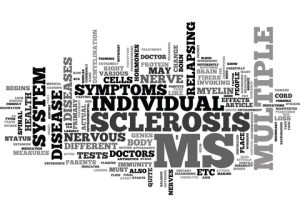“What to know – what to do.”
February 25, 2013
We are taught to take of our teeth, skin, heart, weight and so on every day. But our bladder, too?
Yep. We don’t generally think about the bladder until something goes wrong with it, like when it starts to leak or we feel that something is not working correctly “down there.” Then we have to figure out how to fix the problem.
To start, everyone—whether they have MS or not—should know about urinary tract infections and steps to take to prevent them. That’s because they are easier to get than many people think, and they do not go away on their own.
Urinary Tract Infections (UTI’s)
The primary function of the bladder is to serve as a reservoir to store urine that is produced when the kidneys filter waste products from the blood. Most UTI’s occur when bacteria enter through the urethra and stick to the bladder wall. And most UTI’s are caused by bacteria from the colon and rectal area. Once there, the bacteria will multiply rapidly.
Women are more prone to UTI’s than men due to their short urethra, a tube from the bladder to the urinary opening of the body. Since it is only about an inch long, there is less of a barrier to the entry of bacteria—so something like sexual activity increases their risk. Menopause also is a risk factor because the reduced level of estrogen allows an overgrowth of bacteria of the urinary opening.
What to do to help prevent a UTI:
• Keep the private area clean and dry. Always wipe yourself from front to back thoroughly, not back to front. If protective pads are used for discharges or leakage, change them and clean yourself often. Moisture between the legs is a breeding ground for bacteria.
• Drink plenty of water all day long—don’t restrict fluid intake. A high daily urine volume will wash out bacteria in the bladder. A low daily urine volume encourages UTI’s by failing to wash out invading bacteria; it also can cause stone formation and dries out the feces. You know if your fluid intake is good if the color of your urine is very light in color.
• Keep a high level of acidity in your bladder reservoir—this will inhibit growth of bacteria. How? Take 500-1000 mg. of vitamin C daily. (Do NOT eat or drink oranges or other citric fruits for this purpose as these actually increase the alkalinity of the bladder!) Many resources will tell you to drink cranberry juice, but I prefer not to drink the extra calories since vitamin C accomplishes the same thing. There is also a cranberry supplement available called TheraCran, but it is pricier than Vitamin C.
• Make sure your bladder is as empty as possible when you urinate. Don’t hold your urine for an extended period of time—when you have to go, go!
So how do you know if you have a UTI? Here are signs, of which some or all can occur:
cloudy urine
odor to the urine
blood in the urine
burning sensation with or without urinating
urgency, frequency of urination
fever
If any of the above signs appear, call your doctor immediately to have your urine checked. An antibiotic is necessary to eliminate the infection and possible further complications. Once there is a UTI, taking vitamin C, cranberry juice or consuming a lot of water will not cure it, and it won’t go away on its own.
Since this is an MS blog article, here is a special note to those with multiple sclerosis: A UTI will definitely affect your other MS symptoms as this is an infection, and if left untreated too long, will cause a flare-up and possible further complications.

Other Bladder Problems
The nerves and muscles work together in perfect coordination to control the storage of urine, signal the brain and void urine. But there are things that affect this perfect coordination, and these symptoms may happen:
• frequent urge to urinate
• frequent urination
• hesitancy in starting urination
• difficulty in keeping the urine flowing, or finish voiding
• incontinence
• nocturia—frequent voiding at night, at times without waking.
There are numerous reasons to cause these symptoms. Women sometimes have bladder issues due to pregnancies. Men may have a prostate issue. Others tend to have problems because of their age. And still others develop problems because of an illness. People with multiple sclerosis commonly have what is called a “neurogenic bladder”, whereby that perfect coordination of nerves and muscles become impaired.
The good news is that most of these types of problems are treatable under the supervision of a good urologist, by medications or other procedures depending upon the issue.
And fortunately we now live in an age when we can talk about bladder problems openly without embarrassment.
Doing nothing and just wearing Depends all the time is not a good strategy. Untreated bladder dysfunction can cause damage to the urinary tract, urinary tract infections, or damage to the kidneys. If you have multiple sclerosis, you need to see a urologist who knows about MS and neurogenic bladders, and begin to learn about bladder management as soon as possible.
Due to my MS, I had all six symptoms listed above with my bladder that started over twenty-five years ago. I found an excellent urologist who put me through several tests to examine and evaluate my bladder (dys)function. This is common practice. Then he taught me what to do using medications and self-catherization, and it changed my social and physical life immensely.
It is a process that takes time and practice but is worth it in the long run. I am really proficient at bladder management and though the damage to my bladder function is severe, I have been able to be like a normal person, and nobody would ever guess that I had problems in this area unless I told them.
I control my bladder now; my bladder doesn’t control my life!


 “What’s going on?—I’m so scared!”
“What’s going on?—I’m so scared!” The season of colds, flus and viruses is upon us. For normal people, getting one of these is no fun, but they soon get well and life goes on. For those of us with multiple sclerosis, an autoimmune disease, these sicknesses are detrimental to our overall health.
The season of colds, flus and viruses is upon us. For normal people, getting one of these is no fun, but they soon get well and life goes on. For those of us with multiple sclerosis, an autoimmune disease, these sicknesses are detrimental to our overall health.